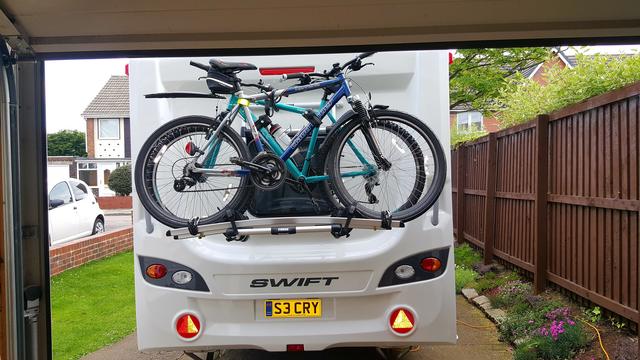Buckman said:
On many outfits you can carry bicycles on the rear as the caravan has a purpose built bracket for this. I would think that the load at the rear may affect handling even if perfectly balanced?
I know this is perhaps a little off teh OP's topic, but one strategy to bring about an acceptable nose load may involve some form of end loading.
There are many variables that will have some effect on the outfits handling. End loading is one that may have the potential to make a noticeable change, but it obviously depends on how much the loading is changed, as well as other things like the type of roads you are towing on, your speed, weather conditions, especially wind speed and direction and other traffic. So its would be difficult pin any handling changes solely on end loading unless its was a very significant change.
The University of Bath, did some work sponsored by Bailey Caravans of Bristol which resulted in a model to demonstrate the effects of trailer loading.
https://www.youtube.com/watch?v=PFzrWHTG5e8
The model had the ability to slide the applied load at various points along the trailer longitudinal axis, and the public demonstrations showed it with the entire load clustered over the main trailer axle, or with the load split roughly equally and positioned at the extreme ends of the trailer.
The results were dramatic. and it laboured the point about NOT end loading. However whilst the model admirably demonstrated the effects and influence of trailer yaw inertia, the model did not realistically represent the reality of caravan construction and the distribution of mass
was demonstrated going from one extreme when the entire load was centered over the axle to splitting the load and placing it at the extreme ends of the trailer. The model was very dramatic, and it certainly points to the need for sensible loading
But, the problem here is, the model does not accurately represent a caravan. The bulk of the mass of a caravan is in its construction, and all we can add is 2 or 3 x 100kg as pay load. So there is no way the whole mass of the caravan would sit at the extreme ends of the trailer. So the model is over sensitive, where as a real life caravan would not be so readily upset and its far less likely to have such dramatic outcomes.
Having made that observation, there is no doubt that every effort to keep yaw inertia to a minimum is an important safety strategy for loading caravans. but in most cases some end loading is not going to be catastrophic.


